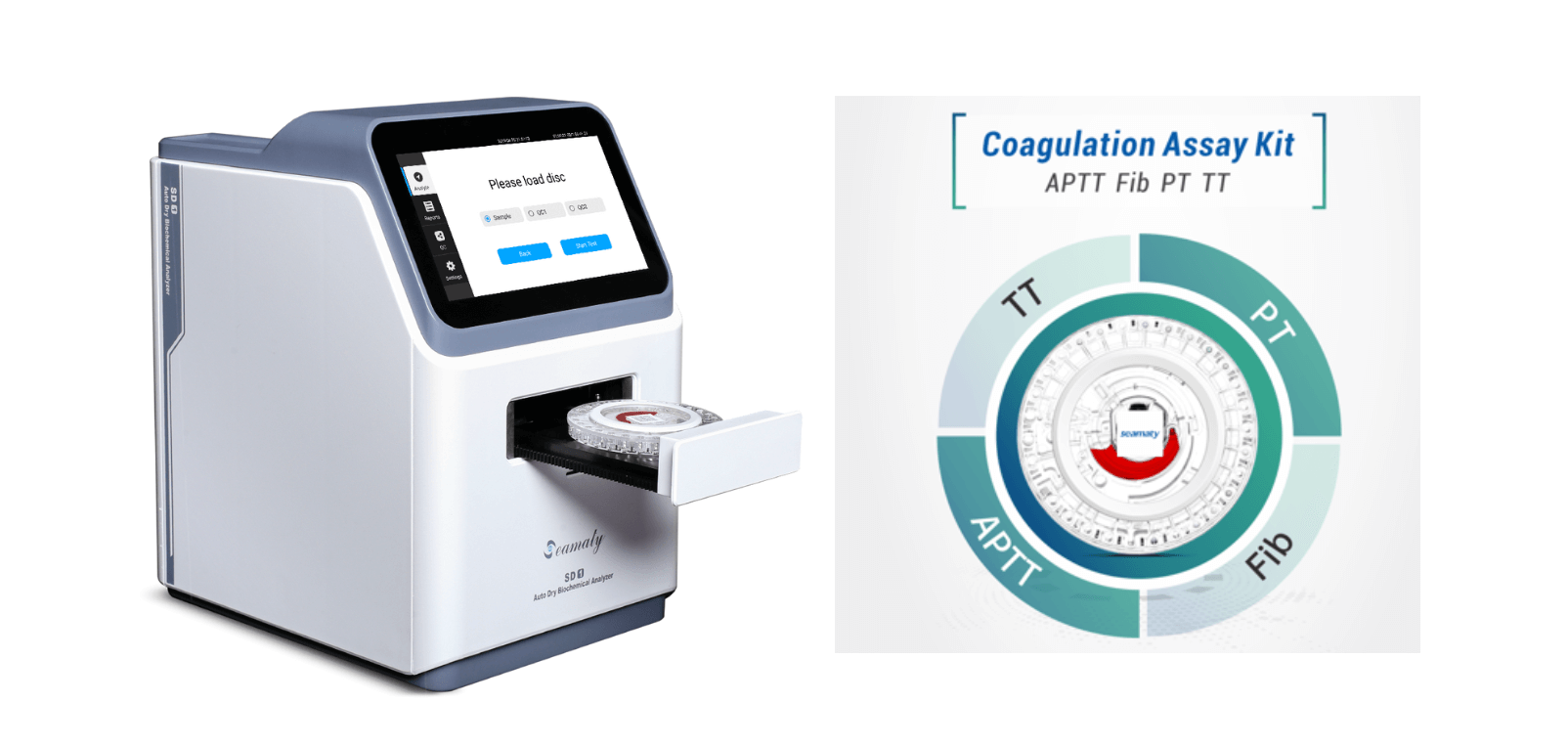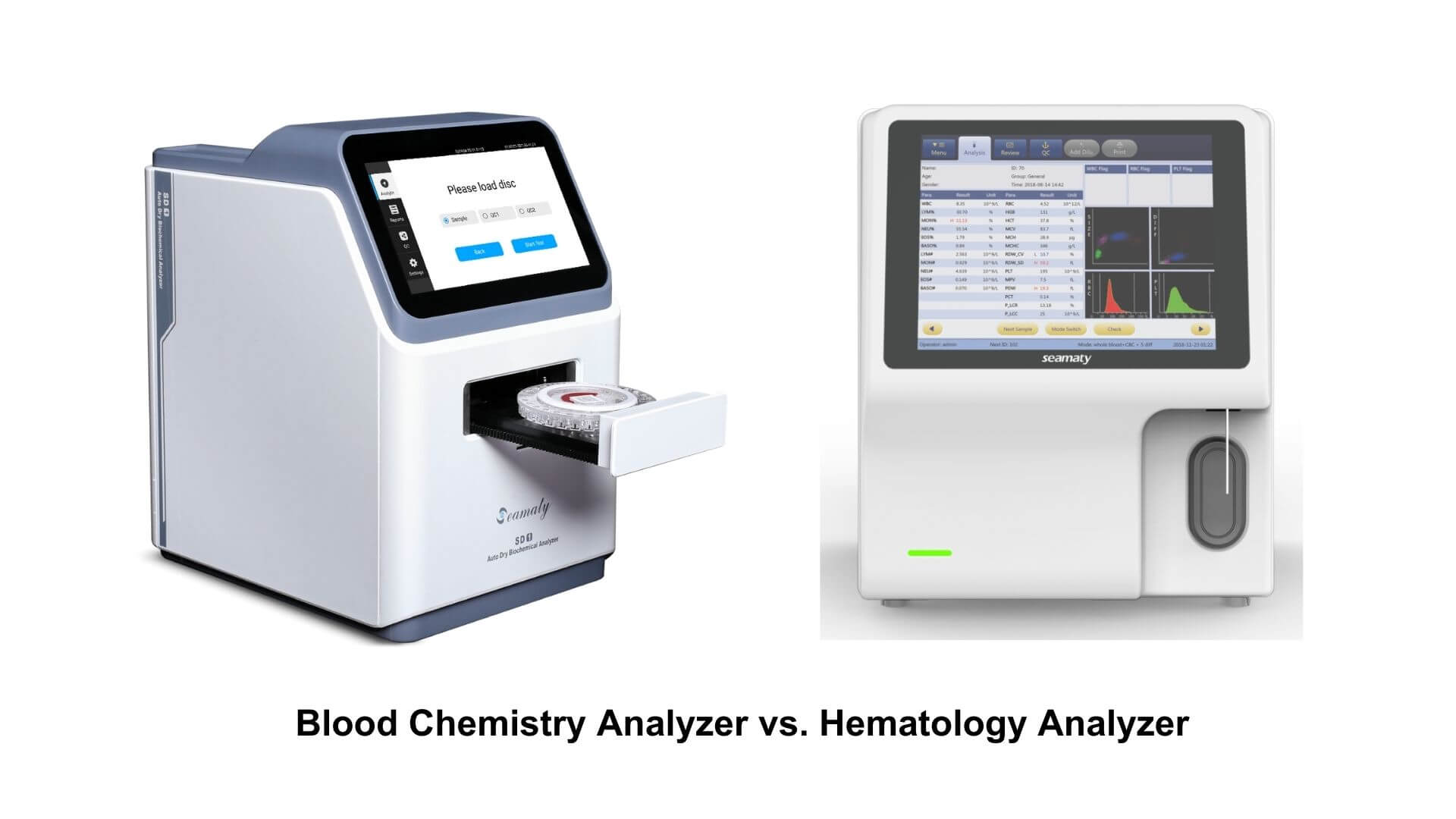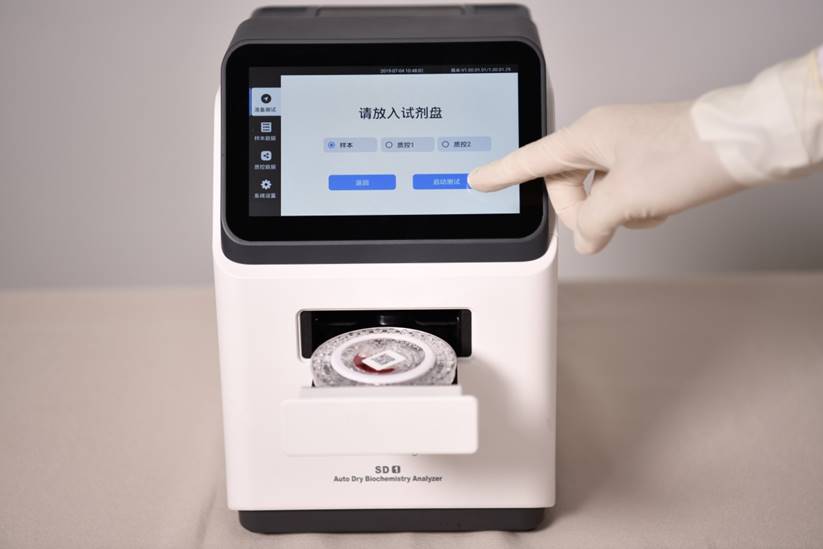release time:2023-04-12 13:19:50
When it comes to clinical laboratory testing, having the right equipment is essential for accurate and efficient results. One critical piece of equipment is the automated biochemistry analyzer, which can quickly and accurately analyze multiple samples at once. With so many options on the market, however, choosing the right automated biochemistry analyzer for your clinical laboratory needs can be a daunting task. In this post, we'll discuss key factors to consider when selecting an automated biochemistry analyzer.
Throughput Capacity
One of the most important considerations when selecting an automated biochemistry analyzer is the number of samples it can process at once. This is known as the throughput capacity and is typically measured in samples per hour. Depending on the size and volume of your clinical laboratory, you may need an analyzer that can process anywhere from a few dozen to hundreds of samples per hour. The Seamaty SD1 chemistry analyzer is an excellent option for high-throughput clinical testing.
Test Menu
Another critical factor to consider is the range of tests that the automated biochemistry analyzer can perform. Different analyzers have different test menus, so it's important to choose one that offers the tests you need for your specific laboratory testing requirements. The Seamaty SD1 chemistry analyzer offers a broad range of clinical chemistry tests, including glucose, cholesterol, electrolytes, and more.
Accuracy and Precision
Of course, accuracy and precision are paramount when it comes to clinical laboratory testing. Make sure to select an automated biochemistry analyzer that has been validated and approved by regulatory bodies, and that has a track record of producing accurate and reliable results. The Seamaty SD1 chemistry analyzer is a trusted and reliable option, with precision and accuracy ensured by the use of high-quality reagents and strict quality control measures.
Ease of Use
An automated biochemistry analyzer should be user-friendly and easy to operate. Look for an analyzer that has an intuitive user interface, clear instructions, and minimal maintenance requirements. The Seamaty SD1 chemistry analyzer is designed with user convenience in mind, with a simple and intuitive touchscreen interface and automatic maintenance functions.
Cost
Finally, cost is always a consideration when investing in laboratory equipment. Automated biochemistry analyzers can range in price from a few thousand to tens of thousands of dollars, so it's important to choose an analyzer that fits within your budget while still meeting your laboratory's needs. The Seamaty SD1 chemistry analyzer offers high-quality performance at a reasonable price point, making it an excellent value for clinical laboratories of all sizes.
In summary, selecting the right automated biochemistry analyzer for your clinical laboratory requires careful consideration of factors such as throughput capacity, test menu, accuracy and precision, ease of use, and cost. The Seamaty SD1 chemistry analyzer is an example of a high-quality option that meets these criteria and is well-suited for high-throughput clinical testing. When investing in laboratory equipment, taking the time to research and select the right analyzer can pay off in the form of accurate and efficient clinical testing.


2023-10-16
Explore the differences between Blood Chemistry Analyzers and Hematology Analyzers in this insightful comparison. Learn about their unique features, applications, and examples like the Seamaty SD1 and Seamaty 5-part auto hematology analyzer.

2021-12-09
Biochemistry analyzers are mainly used to determine various chemical components in human serum. For example, liver, kidney, cardiac enzymes, blood glucose, blood lipids, ions, etc. Biochemical tests are common tests in hospitals. Chemistry analyzers can be divided into wet chemistry analyzers and dry chemistry analyzers.

2021-08-04
Although nconventional animals have suddenly broken the traditional pattern of the pet market framed by cats and dogs, the services and help provided by pet hospitals for unconventional animals have not yet kept up with ....